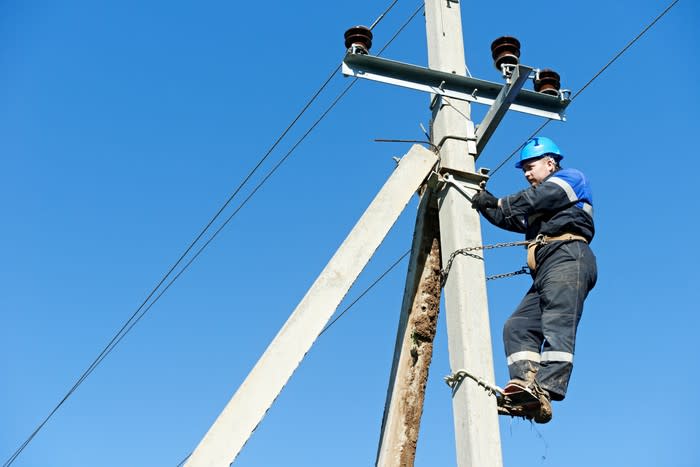Is National Grid a Buy?
Diversified utility National Grid (NYSE: NGG) isn't exactly a household name in the United States. However, with a dividend that currently yields 5.9%, income investors looking at the utility space will probably be attracted to this natural gas and electric player. Before jumping at that fat yield, however, income investors should look at the big picture around this company. One key question they'll want an answer to: Why is National Grid's yield roughly twice the 2.9% average in the utility sector, as measured by Vanguard Utilities Index ETF?
A complex business
Most utilities would be considered geographically diversified if they had operations in a couple of states. National Grid takes it to the next level, providing power in both the U.S. and the U.K. It also splits its operations across electricity and natural gas. That said, the company focuses mainly on distribution assets, owning the natural gas pipes into people's homes and the power lines that transmit electricity from where it is produced to where it is used. Thus, its revenues largely come from payments for the use of its pipes and wires, rather than from providing what gets moved through them.

Image source: Getty Images
If you are looking for diversification in the utility space, National Grid definitely sounds like a good option. That said, the utility has been focusing most of its effort on building up its U.S. business. In its fiscal 2019, which ended March 31, its regulated U.S. operations accounted for nearly 50% of profits, up from just 30% or so in fiscal 2013.
To be fair, the U.K. is a small and mature market -- physically, it's only about the size of Oregon (though that nation is more than 15 times more populous than the state). So finding ways to grow an infrastructure-centric business is likely easier in the United States. Normally, this growth focus would be the key issue for investors to be aware of and monitor, with the natural caveat that owning National Grid means watching a foreign market (the U.K.) that you might not know a lot about. But there's something even more concerning going on right now.
A politically charged problem
Government regulation is one of the biggest issues that utilities have to deal with, no matter where they operate. Normally, the story is about getting rate hikes approved. That generally requires a utility to justify those rate requests by investing money in things like upgrades and expansions. National Grid is working through rate cases like this today, which is just par for the course.
But its U.K. transmission assets are facing a bigger regulatory issue. Earlier this year, the U.K.'s Labour Party proposed that the country nationalize its power grid. That's a huge threat to National Grid, which gets around a third of its underlying operating profit from its U.K. electricity transmission business. It's close to unthinkable that such a policy could be implemented in the U.S., but there, it's a very real possibility. And the venerable Labour Party is currently the second-largest political faction in the country.
This is a big reason why National Grid's stock is only up 10% so far in 2019, while the broader utility sector is up around 20%. And even that 10% advance isn't as clean as it looks, since National Grid's stock is also down roughly 10% from its early 2019 high, while the sector has basically been heading upward all year long. Investors are clearly taking a dim view of this situation.
As you might expect, National Grid has been vocal in its disapproval of the proposal. Indeed, it has said it would take legal action to prevent such a move. That, though, would likely lead to material legal costs. Management also said that, if the Labour Party were to get its way, it would demand "fair" compensation. But what exactly is fair compensation? Any negotiation on that front could be contentious, and liable to end up in a courtroom. That puts National Grid in position to face even more expenses if it loses, and it could still end up shortchanged on the value of its assets.
Not for risk-averse investors
Investors often look to companies in the utility space when they're seeking a combination of good yields and relative safety. National Grid isn't a bad business, but the environment in which it operates in the U.K. just got a lot more hostile, and many U.S. investors will find it hard to get a clear handle on the nationalization issue. So while the big dividend yield here is enticing, National Grid is not a good pick for investors looking for a safe dividend stock today.
More From The Motley Fool
Reuben Gregg Brewer has no position in any of the stocks mentioned. The Motley Fool recommends National Grid. The Motley Fool has a disclosure policy.
This article was originally published on Fool.com

 Yahoo Finance
Yahoo Finance 